iPhone apps and cappuccinos
Ok. I need to preface this rant with a couple of things:
I love coffee, it is totally worth the three bucks and that I have been doing 'on the side' development projects for 15 years and I never made any money untill the App store came along.
The other day Glasshouse Apps (awesome apps you should check out) had a small rant about users expectations for mobile app pricing:
Just read yet another app review from a well known blog which concluded that the $1.99 app didn't have enough zing for the hefty price.
This is not a new idea, but it is a contagious one, amongst app developers anyway.
Is an iPhone app that took months of technical work worth more than a cup of delicious coffee?
I have a handful of apps on the store, the first of them is a glossary of Ballet terms (I have daughters) and it is hard to imagine an app that is less complicated. It has a searchable index of terms, a callout to a view showing some HTML defining the term and a handful of images, it is a universal app (native iPhone and iPad), it has a simple self testing mode and keeps track of your favorite terms. So the minimum price point of 99c is appropriate for an app that took so little to build?
Actually this app took months and months of ongoing effort to build and update. The first 95% of the functionality took relatively little time to write, but the last 5% of polish took far longer. The content itself is the product of careful research and is a project that I imagine I will be working on for years to come. So why do I feel reluctant to charge more?
Mostly it's a fear of pricing myself out of the market, but it's also the understanding that before the iPhone came along, I spent months & months on programming projects that made zero money. Both of these arguments are closely tied to how programmers value our own work.
I have made a few thousand bucks from my Ballet glossary, and that is awesome, but it doesn't come close to the amount that the market values my time as a developer. So can app developers collectively raise our prices and our users expectations? Probably not, but it would be nice.
I am heading over to the app store right now to raise my prices. I am sure I will chicken out in a few weeks and drop them again, but it is worth a shot.
Permalink - Comments - Tags: Development,iPhone,iPad
Phonics Deck
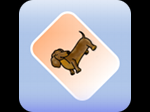
Phonics Deck is a deck of 42 phonic audio cards to help your child learn to read.

Each card has simple word on one side. Tap the card to 'flip it', hear the word read and see a hand drawn picture. Underneath the picture, the word is broken down into individual phonics or sounds. Tap each phonic to hear the sound read aloud.
Phonics Deck is a universal app, it will work natively on your iPhone, iPad or iPod Touch.
Permalink - Comments - Tags: Development,iPad,iPhone,App
Phonics Deck Artwork

I have spent a lot of time over the last few months working on my next iOS app. From a development perspective, it went pretty quickly. I built a universal app (iPhone & iPad) with arbitrary orientation from the start and that was pretty satisfying. I had failed to do that with Monster Memory and I think the final product suffered as a result.
So the app itself was built in a few weeks. The bulk of the time was doing the artwork for the 42 cards that are managed by the application. In hindsight, it was an insane project to embark upon and I am very glad to be finished. Here is the full set of cards in the app:
Ok ... I was scraping the bottom of the creative barrel when I got to truck.
Permalink - Comments - Tags: Development,iPad,iPhone,Art?
Faerie Memory Artwork

So I have finished my fairy themed version of my iPad concentration card game. As with Monster Memory, I was posting each piece of card art to my Tumblr. Here are the final versions that I used in the game:

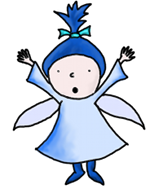


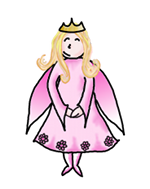


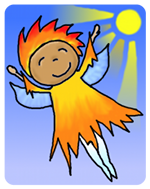
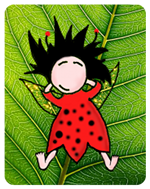


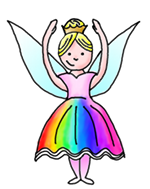

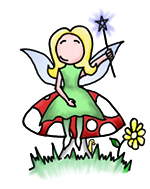

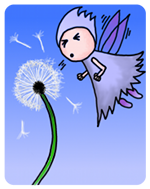
Permalink - Comments - Tags: Development,iPad,Art?
Faerie Memory for iPad

Faerie Memory is the classic memory game Concentration, with a literacy twist.

Half the cards in each game show 64 of the most commonly used words in the English language. When your child flips over one of these key word cards, they hear the word read aloud and try to memorize its position. The other half of the cards are cartoon faeries to keep your child coming back.
This process will build familiarity with words that appear in almost every sentence they will see. This familiarity translates into confidence that will be invaluable as they learn to read.
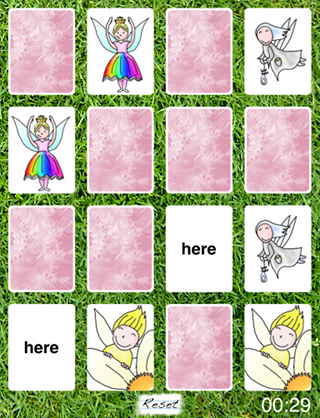
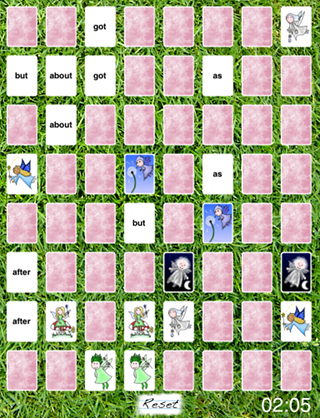
The game supports multiple levels of difficulty, single player and two player modes.
Permalink - Comments - Tags: Development,iPad,App
[First Page] [Prev] Showing page 3 of 4 pages [Next] [Last Page]
 Mastadon
Mastadon Feeds
Feeds Contribute
Contribute